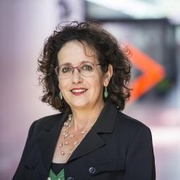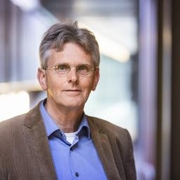- Level Foundation
- Duration 16 hours
- Course by Utrecht University
-
Offered by

About
Our society depends on the availability of food and accessibility to it. According to the United Nations nearly 800 million people are hungry and on the other hand, over 650 million people are obese. While many people in developing countries experience food shortage, in industrialized countries people are throwing food away. These facts show how paradoxical and complex the world’s food problem is. ln this course, more than 10 food researchers from Utrecht University will address the main issues of food consumption. They will handle two interrelated themes; Food shortage and Healthy choices. You will learn to identify the key ingredients of the world’s food challenges and to think about the solutions for enabling changes in the current food system. We will also look at the possible sustainable solutions for several accut issues: the demands of the growing human population, the role of nutrition, and the need to understand food choices in order to have healthier diet and consider the possibilities of alternative foods. We invite you to join us on an interdisciplinary journey through the world food problems. You will gain new knowledge and insights that will help you form your own opinion on these subjects and make better choices in your food consumption. We hope you will enjoy the course! The Future Food TeamModules
Future Food Introduction
1
Videos
- Welcome to this course!
2
Readings
- Welcome to the course!
- Short survey
Food Shortage
1
Assignment
- Shortage and production in context
1
Peer Review
- Food shortage and distribution: a problem?
3
Videos
- Introducing the theme - Food Shortage
- Production limiting factors
- Vulnerability to famines
1
Readings
- Food shortage or distribution problem?
Sustainable solutions
2
Assignment
- Plant production in context
- Animal welfare
1
Peer Review
- Recap theme - Food shortage
1
Discussions
- What would be the most important solution when thinking about food production?
4
Videos
- The role of genetics in dealing with the environment
- Control of disease and spoilage in plants
- Disease control in animals: Animal health
- Learning from nature
2
Readings
- Accepting alternative foods
- Closure theme - Food shortage
Food & Health
3
Assignment
- What is nutrition?
- Microbiomes in plants
- GIT development and function
6
Videos
- Introducing the theme - Healthy choices
- Functionality of foods and dietary patterns
- Early life nutrition
- Interface gastrointestinal tract (GIT) and microbiotica
- Food allergy
- Obesity
4
Readings
- Mother milk vs infant formula
- Gastrointestinal development and function
- Food allergy
- Interesting topic?
Food-related behaviour and interventions
1
Assignment
- Recap theme - Healthy choices
3
Peer Review
- Economic/environmental determinants of (un)healthy eating
- Interventions aimed at the environment: Spot a nudge!
- Political/economical interventions (Sugar tax)
1
Discussions
- Is anyone from a country where they eat insects?
7
Videos
- Introducing food related behavior
- Psychological determinants of (un)healthy eating
- Economic/environmental determinants of (un)healthy eating
- Interventions aimed at individuals (Voedingscentrum)
- Interventions aimed at individuals
- Interventions aimed at the environment
- Political/economical interventions
2
Readings
- Interventions aimed at the environment
- Closure theme - Healthy choices
Final assignment
1
Peer Review
- Apply your knowledge
Closure
1
Videos
- Closure
1
Readings
- Final survey
Auto Summary
Join "Unravelling Solutions for Future Food Problems" to explore global food challenges and sustainable solutions with expert researchers from Utrecht University. Focused on Health & Fitness, this foundational course covers food shortages, healthy choices, nutrition, and alternative foods over a span of 960 minutes. Ideal for those interested in making informed food consumption decisions, it offers Starter and Professional subscription options on Coursera.

Prof. dr. Denise de Ridder

Prof. dr. Marca Wauben

Prof. dr. Rens Voesenek


